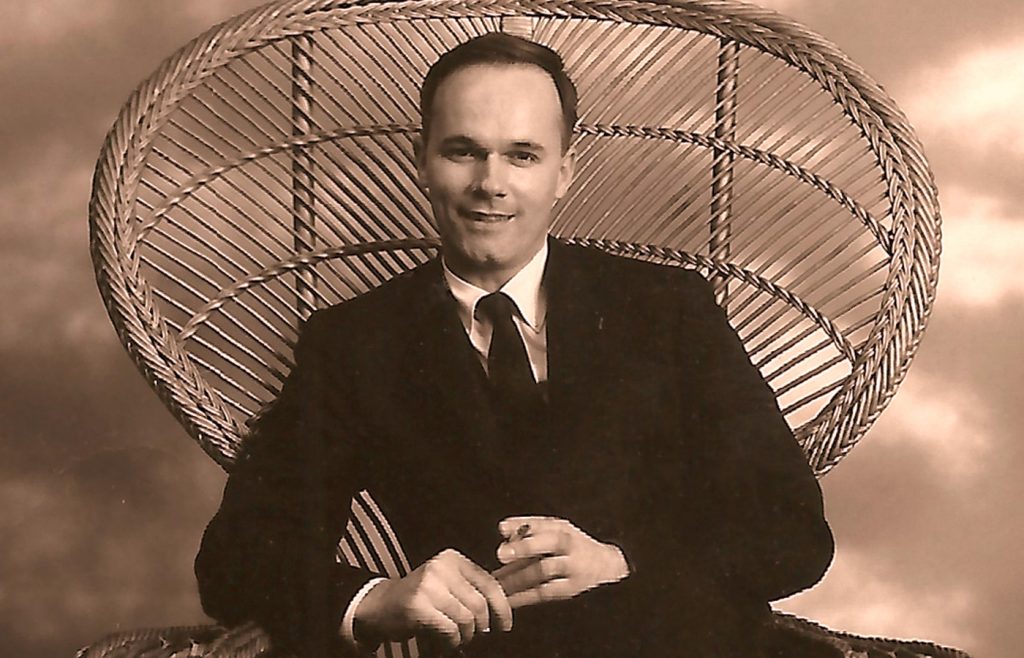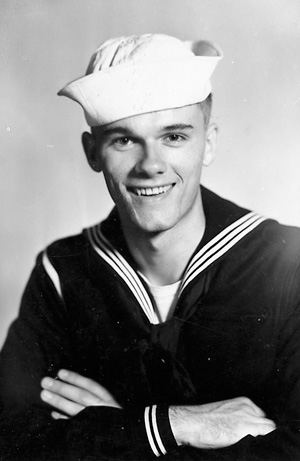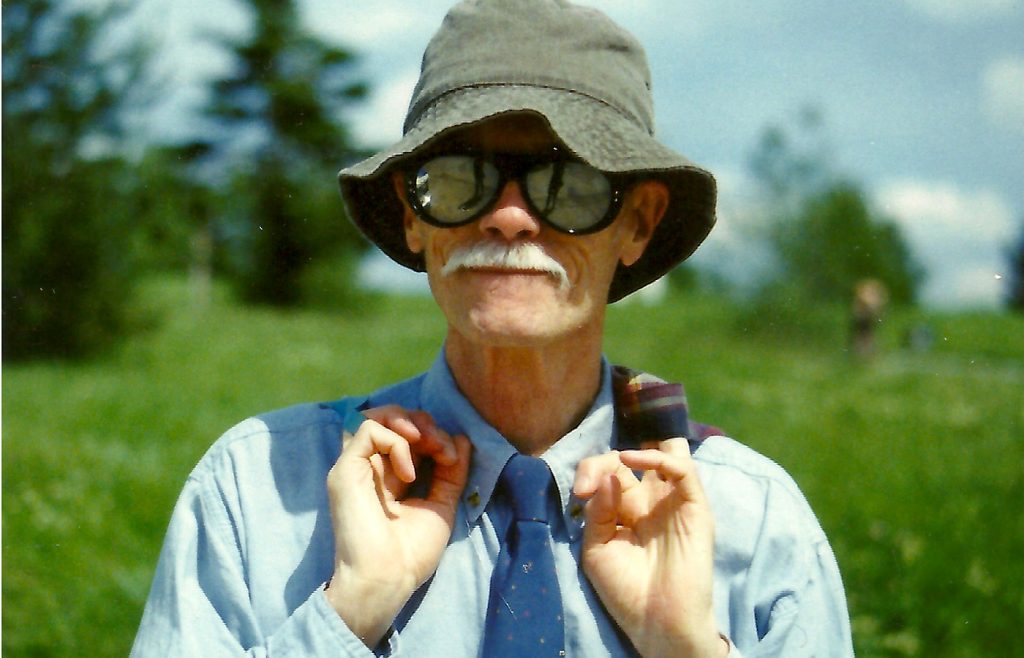
In a way, Norman Zierold’s life has now come full circle. Born in 1927 and raised in the pastoral beauty of the Amana Colonies west of Iowa City, he left behind the rural delights of the Midwest in 1945, first for a stint in the navy and then for a degree in political science at Harvard University.
After returning to the Midwest to study at the University of Iowa and spending two years in France on a teaching assistantship, he headed for the bright lights of New York City, intent on making a career in the literary arts. By 1960 Zierold was editor of Theatre Arts Magazine and rubbing shoulders with many of the cultural icons of the day.

His fascinating life has been colored by a series of meetings, some intentional, some fortuitous, with several of the 20th century’s most famous celebrities. Even as a student in Iowa City, Zierold chanced into a conversation with wild Welsh writer Dylan Thomas, in town for a reading of his poetry.
As a young sailor backstage in New York City, he met the incomparable Mae West, though there is no indication he got an invitation to “come up and see me sometime.” As editor of Theatre Arts Magazine, he came close to employing a young Andy Warhol and he interviewed an aging Charlie Chaplin; he was present at Madison Square Garden in 1962 when Marilyn Monroe sang a very seductive “Happy Birthday Mr. President” to John F. Kennedy.
By 1965 Zierold had turned his hand to book writing, producing a series of biographies about famous movie stars and directors (The Child Stars, 1965, The Moguls, 1969, Garbo, 1969, and Sex Goddesses of the Silent Screen, 1973). He moved to the even brighter lights of Los Angeles, where he mixed freely with the illuminati of Hollywood. One of the most delightful stories he recounts in his memoir, That Reminds Me, is his time spent with Anthony Quinn in Death Valley working on the actor’s autobiography.
After a personal epiphany in 1972, Zierold’s life took a more spiritual turn. He relinquished the life of a bon vivant and traded in his evening cocktails for a mantra, devoting many hours to the practice of Transcendental Meditation.
The circle of his life complete, Zierold is back home in Iowa, where he lives and works on the pastoral campus of Maharishi University of Management in Fairfield.
When I first met Norman 20 years ago, I was immediately struck by his natural elegance and wit as well as the fascinating stories he had to tell of the golden years of Hollywood. “What would shock me, would kill most people,” he once quipped with a sharp twinkle in his eye.
We met recently in his office in Fairfield to discuss his life and new memoir, That Reminds Me.
Tony Ellis: Out of all the anecdotes in the book, do you have a favorite?
Norman Zierold: Probably rubbing legs with Barbara Walters. It was in the late ’60s and she was interviewing me for NBC’s Today Show as part of the publicity for a book I had written . . . . As a prelude to going on air, we were chatting backstage. While we were chatting I had the feeling that Barbara’s leg was pressing against mine. Was it possible, I asked myself? Would this great lady be making a pass at me—at this bleak hour of the day? If it was true, and I didn’t respond, would she give me a bad interview? On the other hand, if I responded and had made a mistake, would I get an even worse outing? You can imagine it was quite a quandary I was in. Just then I felt, very distinctly, the Walters gam pressing against my own.
“Norman, did you feel that?” she asked.
“Why, yes,” I said sheepishly.
“When I do that during the interview,” she breezed on, “it means I want you to finish your sentence quickly so we can break for a commercial. Got it?”
“Okay,” I sighed with relief.
Are there any stories that you didn’t put in the book?
No, I put in everything that was relevant. I could expand the book to be threefold because there were many people I met that I forgot about and when I did think of them I thought it would not add anything.
When you write something, it has a rhythm, and I was very lucky that I found one. Over the years, I had been asked to write a memoir many times. And I always thought there wasn’t really a story there that was compelling enough, with a beginning, a middle, and an end, and a huge drama in the middle. I do have a progression in my personal story, but I thought that was not enough. Then I finally came up with the idea of a conversation with the reader, and that’s the only way it could be done. The things I did, they are not earth shaking but they are wonderful in many ways: I did sit there with the President of France and watch the coronation of Queen Elizabeth, for example. In the end, I found a way to weave together these little anecdotes and make a story out of it.
You were right there in the middle of two important and very opposite trends of the ’60s: the self-indulgent celebrity culture and the awakening to the spiritual wisdom from the East. In a way, you went from sinner to saint, and that is fascinating.
Absolutely, I did go through that. And the spiritual trend has totally dominated the second half of my life.
Do you ever have any moments of regret about the life that you gave up to pursue the spiritual?
No, because I didn’t really give it up. I still continued writing whenever I wanted to. I had 200 percent of life. I never missed anything. I just knew this was the way to go.
Is it possible to encapsulate your life experience in a few sentences?
There was a long period of learning how to live life the hard way and then a period of learning how to do it the easy way.
Do you think it is valuable to revisit our past?
Yes, I do. I think we all have to revisit the past at some point and put it into context of our current life. You don’t have a choice. You will go back. And I have come back to my past by moving back to Iowa and writing this memoir.

One final question: Given a choice, would it be Greta Garbo or Marilyn Monroe?
Oh, Greta Garbo for sure. . . . Whatever the obstacles, she quietly did things her way. She lived a life she liked with the people she liked. She didn’t need anyone’s help to move forward. She was already as far forward as you could get.
Norman Zierold passed away on Weds., March 7.
